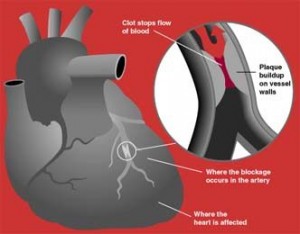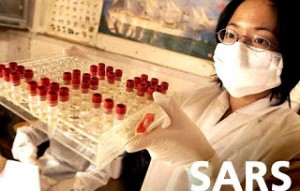There is a window of opportunity for the patient who is rushed to hospital with a heart attack.
To be precise: if the patient is brought to hospital without delay, and there are changes in the ECG, which traces the heartbeat, and there are changes that point to the possibility of a heart attack, there is a chance to administer medication that prevents blood clots. If these “clot busters” are administered within one hour, as many as 25 % of heart attacks in the making can be aborted. This procedure is called “fibrinolysis”.
Dr. Paul Armstrong, professor of medicine at the University of Alberta, explains, that the aborted heart attack (or “aborted MI”) is a new term in cardiology. If treatment is received early, the patient will avoid heart muscle damage. Even if the treatment with the anti-clotting medication is given after only two hours, the patients still have a more favorable outcome. Patients with aborted heart attacks also have smaller infarcts than those who go on to have a full-blown MI (or heart attack). Dr. Armstrong points out that it is important to not only watch out for known high-risk factors (previous coronary artery bypass surgery, hypertension and diabetes), but also to pay close attention to treating the patient early.
More info on heart attacks: http://nethealthbook.com/cardiovascular-disease/heart-disease/heart-attack-myocardial-infarction-or-mi/
Reference: The Medical Post, July 27,2004, Vol.40, No. 29,pg.8
Last edited October 26, 2014







